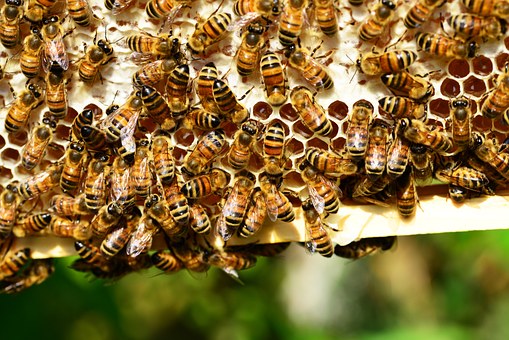It was a harsh winter for Creston Valley bee keepers where an approximate 70% loss of bees have been reported.
But for Honey Bee Zen Apiary, Creston’s largest supply of pollinators and honey, it was worse.
“Last fall we started to see significant losses developing,” Honey Bee Zen Owner Jeff Lee explains. “We ran into about 70% which is the amount we had talked about back in the fall. By the time we had got out of winter and were able to see how many hives were still alive, we were into the 90%. So we had a significant loss of bees this year in the Creston Valley.”
The national average for bee loss in previous years was 20% to 30%, including Lee’s apiary. His numbers fell from 400 hives to 40. Lee’s solution to replenish his numbers was to order bees from Australia. Canadians are only allowed to import bees from Australia, New Zealand and Chile.
Bees can be replenished over time but Lee and other local honey producers decided to make an investment to quickly restock in order to have the numbers for the pollinating season. According to Lee, the demand is high and the price for 1 Kilogram of bees including a queen costs $250 per package.
Lee bought 160.
“We spent a lot of money to bring in new bees so we could pollinate most of the clients that we had. We had to leave some of the clients out because we just didn’t have enough bees and there was another bee keeper in the area to bring in some bees, a lot of other bee keepers helped out where we had some problems.”
Now Lee says populations are booming, having doubled his 200 hives to roughly 400. But the problem all hives face still exist, including Varroa Mites.
“It can carry a host of viruses and those viruses can really affect your bees,” Lee goes on. “It’s a bloodsucker and it is ubiquitous. Anybody that says they don’t have mites don’t know what they are talking about.”
The bees Jeff Lee and his partner Amanda Goodman Lee bought are from a region in Australia where Varroa Mites do not exist. Now the pair must completely sterilize a hive before transplanting new bees.
According to Lee the provincial government has been the most supportive it has ever been by handing out grants for research, pesticide management and generally supporting bee keepers.
May 29 is Day of the Honey Bee, celebrating the 2,300 beekeepers throughout B.C. operating either as a hobby, part-time, or full time business with roughly 47,000 colonies, and as many as two billion bees across the province.


